
Magha masam
January 30 to February 27
IN THIS ISSUE
Kindness
Art Work
Vasanta Panchami
Art Work
Temples I visited in 2024
Shree Krishna Bhajan
Art Work
Sankranti
Art Work
My Mandir Yatra
Know My Hindu Values


Magha masam
January 30 to February 27
Kindness
Art Work
Vasanta Panchami
Art Work
Temples I visited in 2024
Shree Krishna Bhajan
Art Work
Sankranti
Art Work
My Mandir Yatra
Know My Hindu Values
Dallas East and North Vibhags - Bala - Monthly Newsletter
By Hari ji Krishnan, Karyavah, Dallas East
Dear Balas,


On February 26th, we will be celebrating Maha Shivaratri, one of the most significant Hindu festivals This auspicious occasion honors Lord Shiva, the supreme god of transformation and destruction, and is known as "The Great Night of Shiva " During this time, devotees pray, meditate, and seek Lord Shiva’s blessings for strength, wisdom, and happiness.
According to the Shiva Purana, during the churning of the ocean (Samudra Manthan), a dangerous poison (Kalakuta Visha) emerged, threatening to destroy the universe. Both Demons and Devas prayed to Lord Shiva for protection To save the world, Lord Shiva drank the poison and held it in his throat, turning his throat to blue This earned him the name Neelakanta Since then, Maha Shivaratri has been celebrated to remember Lord Shiva's act of saving everyone in the universe. As this event occurred during the night, we celebrate Maha Shivaratri by doing puja at night.
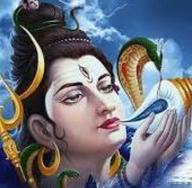
We can celebrate the festival by Devotees observe a fast by consuming only fruits and milk, to purify the body and mind. Meditating by chanting "Om Namah Shivaya" This powerful mantra is repeated to seek Lord Shiva’s blessings
Devotees visit temples and do Abhishek with Water, and Panchamrit (Panchamrit is made of Milk, Curd, Ghee, Honey, and Sugar) over the Shiva Lingam, a sacred symbol of Shiva
Devotees stay awake throughout the night, praying and singing Lord Shiva's devotional songs. We can learn valuable lessons by celebrating Maha Shivaratri Self-discipline by fasting and meditating, helps us learn self-control and patience
The festival reminds us to be thankful for life and its blessings
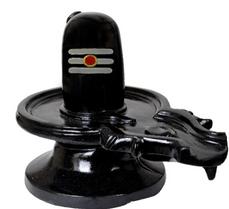
Hindu Heroes
Birthdays
Birthdays
As we celebrate Maha Shivaratri, let's remember the incredible strength, bravery, and wisdom of Lord Shiva. Just like him, you too have the power to overcome any challenges you face This festival teaches us the importance of staying positive, disciplined, and grateful.
Remember, you are capable of achieving great things
Believe in yourself, work hard, and always stay true to your values Let this year's Maha Shivaratri be a reminder that you have the strength within you to make a difference in the world
Stay curious, keep learning, and never give up on your dreams May Lord Shiva bless you with happiness, wisdom, and the courage to pursue your goals
Om Namah Shivaya!!!

~By Jhanya, Prayag Shakha

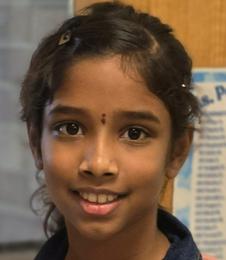

Shrinika
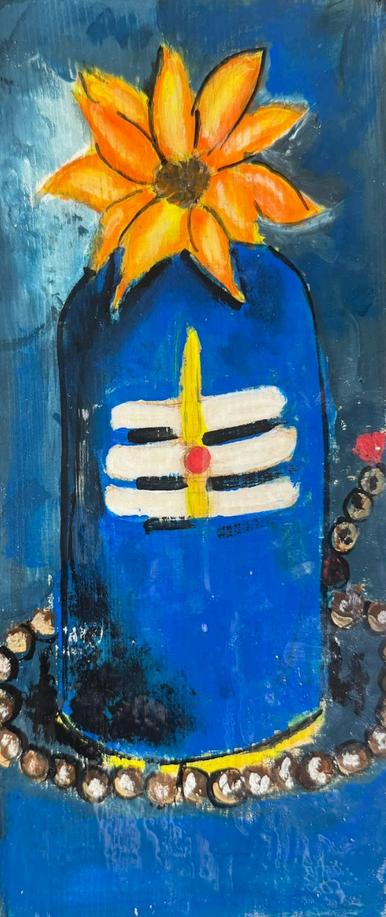
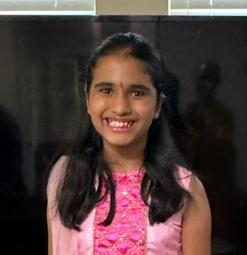

~By Prachet Mohanty, Prayag Shakha
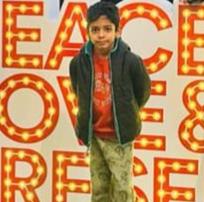
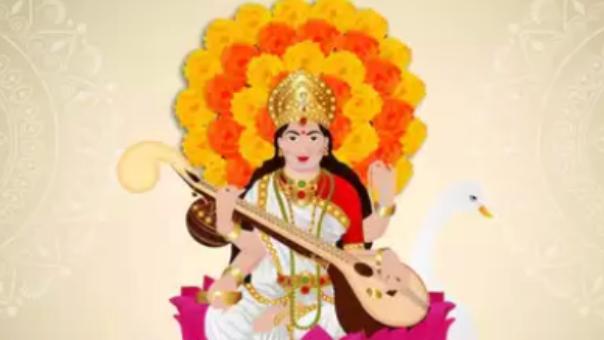
Vasanta Panchami: If Saraswati Devi would bless me with a special blessing for one talent, then,
“It would be for my Study.I want to study more for human body structures DNA are the building blocks of life So I want to be a scientist and in order to be a scientist I need to have very good marks in higher grades. I will always do my best but I also need blessing from Saraswati Devi, without her blessings I doubt I can achieve my goal ”

~By Shrihaan Agrawal, Unnati Shakha
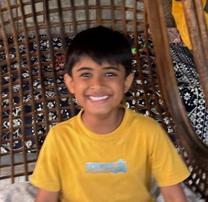




~By Shloka Kotha, Prerana Shakha

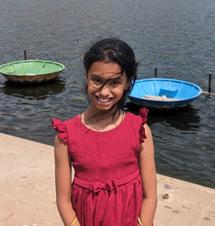
Hi, my name is Shloka Kotha. On my trip to Bharat last year, I visited many temples with my family. I have visited 5 Jyotirlinga temples and 3 shakti peethas on this trip. There is a total of 12 jyotirlingas and 51 shakti peethas.
Mallikarjun and Bhramarambika(Srisailam) - It is a temple located in Andhra Pradesh state where Shiva is worshipped as Mallikarjuna(jyotirlingam) and Parvati as Bhramarambika(shaktipeeth). We went on a round boat in Krishna River which is also known as Paatal Ganga.
Omkareshwar - It is a temple located in Madhya Pradesh state near Narmada river. We also visited Mamleshwar temple which is also part of Omkareshwar.
Mahakaleshwar - It is in the ancient city of Ujjain in the state of Madhya Pradesh near the river Shipra. The temple corridor was built recently and looks astonishing.
Grushneshwar - It is a temple located in Sambhaji Nagar (Aurangabad), Maharashtra. Ajanta and Ellora caves are also located in the same place which are UNESCO world heritage sites.
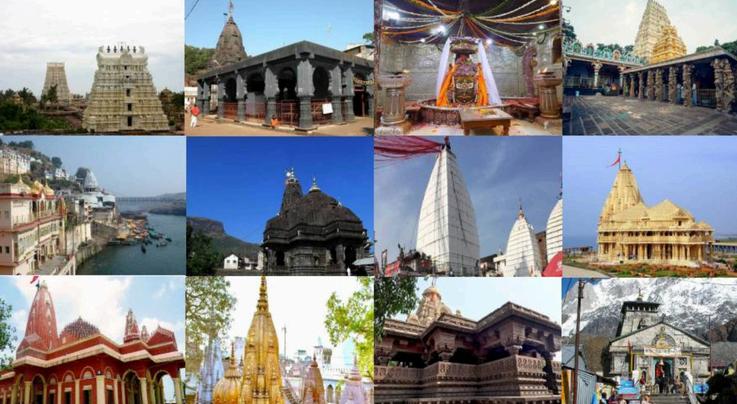

~By Shloka Kotha, Prerana Shakha


Trimbakeshwar - It is an ancient Hindu temple in Nashik, Maharashtra. The Godavari River, the second longest river in India also known as Ganga of South originates in Nashik.
Kanchipuram - Kamakshi Amman temple which is a shakti peeth is in Kanchipuram near Chennai. There are many temples in the city that are huge and have very good architecture. There is also a golden lizard temple in Kanchi where all the devotees touch the lizard carving.
Jogulamba - It is a shakti peeth located on the banks of Tungabhadra River in Alampuram, Telangana.
We have also traveled to Tirumala(Tirupati), the richest temple in the world, in Andhra Pradesh and Tiruttani in Tamil Nadu.
Fun Fact - The prasadams served in the temples were awesome and also, we had nice food in Indore on our trip to Ujjain.
---Shloka Kotha


Shri Krishna Bhajan
~By Dyuti, Prerana Shakha




~By Vedavyas, Prerana Shakha

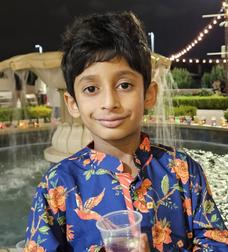


~By Tanuj Gogulapati, Chetana Shakha
About Makar Sankranti

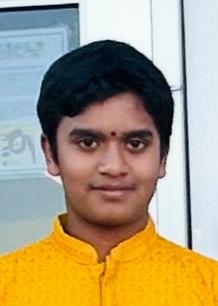
Is it amazing that Sankranthi is the only Hindu festival not based on the lunar calendar? Well Sankranthi is the transition of the sun from Dhanur Rashi (Sagittarius) to Makara Rashi (Capricorn). There are 12 Sankranthis(transition of Zodiac) in one year. The Makar Sankranthi is special because it is the transition of the sun from the zodiac and the transition from Dakshinayana to Uttarayana.The transition of the Sun from South to North and South are called Uttarayana and Dakshinayana and this all happens in one year And not only that but it is also a harvest festival But there’s more to the fun The Sankranthi festival spans 3 days. Those 3 days are Bhogi, Makar Sankranthi and Kanuma.
The first day of the Sankranthi festival is Bhogi. Bhogi comes from the Sanskrit word Bhog, which means pleasure. Since Sankranthi is a harvesting festival, it also revers the earth that help grow good crops. Crops are grown when they are planted in the Earth and the soil gives nutrients to the plants helping the crops to become nutritious. So Bhogi is for honoring the Earth(Bhu Devi). And in South India, they read the story of Godha/Andal Kalyanam And people throw wooden objects into a bonfire to celebrate new beginnings. Bhogi pallu is poured on children to determine whether theyŕe an yogi or not. Bhogi pallu include fruits, flowers and coins. Kaappu kattu is a traditional practice observed in the Kongu region of Tamil Nadu, wherein leaves of Neem,Avaram, and Poolappu tied along the roofs and walls of houses and residential areas. The term "Kaappu Kattu" originates from the Tamil word "kappu," meaning "to secure" or "to protect."The primary objective of Kaappu Kattu is to ward off evil forces and malevolent spirits, thereby ensuring the protection and well-being of the inhabitants.In Maharashtra, people eat roti made of Bajra sprinkled with til and mix vegetable gravy.
Day number 2 of the Sankranthi Festival is the main festival Sankranthi/Makar Sankranthi. Sankranti is derived from the word 'Sankramana', meaning a 'change' Since the Sun transitions from Dhanur Rashi to Makar Rashi, it is also called Makar Sankranthi. People from all around India pray to Surya Bhagwan. People go to the Triveni Sangamam to bathe in the confluence of Ganga, Yamuna, and the lost Vedic river Saraswati. People also observe the practice of Suryanamaskara. Suryanamaskara also helps the body to become more stronger. And kite competitions go on in every single part of India. There are various designs of kites that are flown. In North India, there are melas held every single year as they do for Dasara and Diwali. And mainly this festival is for the humans, who produce the crops and consume the crops, to enjoy themselves for one day They eat sweets during Sankranthi such as Laddoo, Paniyaram /Obattu/Bobbattu. This festival has many names across India such as Pedda Panduga,Pongal, Makar Sankranthi, Magh Bihu, Makara Sankranthi, Makaravillu, Shankranthi, Magha Mela, and other names

~By Tanuj Gogulapati, Chetana Shakha


The last and final day of the festival is Kanuma. The last day of the festival is dedicated for animals. Animals such as cows help plow the ground, and sheep grow hair on their body which would be trimmed and used as wool. So that day, there are cockfights mainly in Andhra Pradesh and Tamil Nadu. Harisdasu plays a musical instrument called Nadaswaram and beats the drums to make the bull dance to their tunes. In exchange for this performance, they are offered rice, clothes, and money from the families of each home. Govardhan puja or Gou pooja (worship of cows) takes place during the Kanuma festival. The cattle are bathed and decorated with paint and ornaments. They are taken to the temples and pooja is performed. According to legend, on this day Lord Krishna saved the local people of Gokula who came to his rescue after there was a huge flood in the village. It is said that Lord Indra, in the form of his avatar god of rain, was overconfident about his powers and flooded the village. Krishna picked up the Govardhan hill with his little finger and gave shelter to all the villagers in danger. Seeing the effect of his actions, Indra withdrew the heavy rains from Gokula. Krishna then offered a Govardhan puja to calm Indra.
In conclusion, Sankranthi is a fun festival that includes the nature-dedicated Bhogi, the main day of Makara Sankranthi, and the cattle-dedicated Kanuma. Sankranthi is a festival that promotes togetherness and happiness. Despite it being a celebration of the change of Rashis and the direction change of the sun, it still entertains a lot of people. It also has different customs and different names all across the country of India/Bharat. It is even celebrated in some international countries such as Thailand, Srilanka and the countries where the Indian diaspora settled. So the next time Sankranthi is celebrated, think about the very-deep meaning of this grand festival.

~By Shriyansh Thota, Unnati Shakha


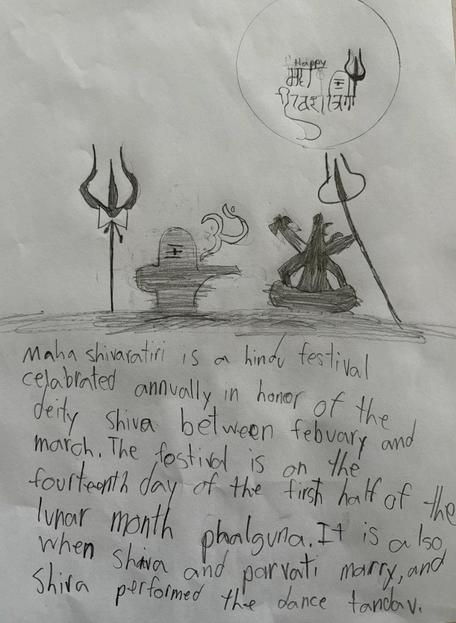

~By Vedant, Prerana Shakha




~By Prerana Shakha
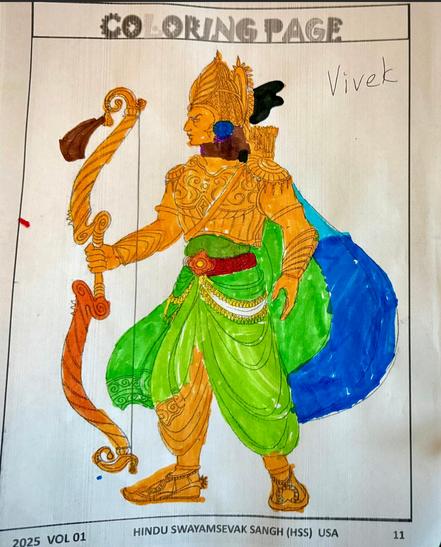



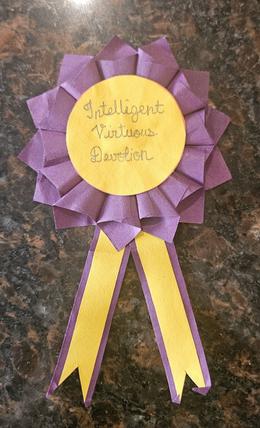


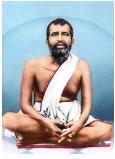


Dayanand Saraswati
Date of Birth: February 12, 1824
Dayananda Saraswati was an Indian social leader and philosopher. He is credited with founding an influential Hindu reform movement known as Arya Samaj.
Ramakrishna Paramhansa
Date of Birth: February 18, 1836
The widely revered Hindu religious leader and saint who had a large following was known for promoting the ancient Indian philosophy of Advaita Vedanta and Bhakti.
Sarojini Naidu
Date of Birth: February 13, 1879
Sarojini Naidu was an Indian poet and political activist. An important figure in the Indian Independence Movement, she was a proponent of anti-imperialistic ideas, women's rights, and civil rights.
Dr. Shanti Swarup Bhatnagar
Date of Birth: February 21, 1894
He was revered as the ‘Father of research laboratories’ for promoting scientific research during the industrial revolution in independent India, he made significant contributions to the field of magneto-chemistry.

Krishnadevaraya

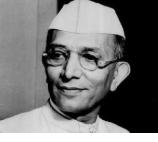

Date of Birth: February 16, 1471
Krishnadevaraya, from the Tuluva Dynasty, was the emperor of the Vijayanagara Empire from 1509 to 1529. Named the Lord of the Kannada empire, he was one of the most influential Hindu kings of the Indian peninsula.
Morarji Desai
Date of Birth: February 29, 1896
Bharat Ratna-recipient Morarji Desai was a freedom fighter and served as the prime minister of India from 1977 to 1979.
Bhimsen Joshi
Date of Birth: February 4, 1922
Bhimsen Joshi was an Indian vocalist best known for recording devotional songs. Widely regarded as one of the greatest vocalists of all time, Bhimsen Joshi was the first Indian musician whose concerts were promoted through posters in New York City, New York.


Feb 02
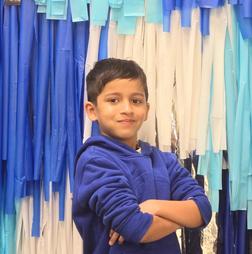
Paarth Mohata Feb 04
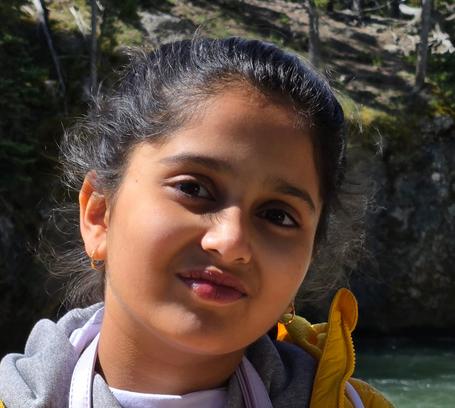
Dyuti Feb 08
janma dinamidam ayi priya sakhe santanotu te sarvadä mudam prärthayämahe bhava satäyusi isvarah sadä tväm ca raksatu || punya karmanä kirti marjaya jivanam tava bhavatu särthakam ||
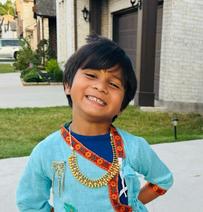
Vedanta Renganath Feb 27

Agni (Kishor)
Sunday 9:30 AM - 11:15 AM
Legacy Dance Academy
8050 Preston Road Suite 206, Frisco, TX 75034
#469-269-2535
Anna/Mellisa
Friday 6:30 pm to 8 pm
At Deep Roots Montessori 1722 W White St, Anna, TX 75409
Chaitanya
Friday 6:30 PM to 8:00 PM 1380 SW Westpark Dr,Suites #1 and #2
Bentonville AR 72712
#479-866-2575
Chetana Saturday 8:15 AM - 9:55 AM
Sai Nritya Academy
2751, South Stonebridge Dr. # 1
Mckinney TX - 75072
#972-207-9137
Jagruti
Sunday 3:30 PM to 5:00 PM
Ahn's Tae Kwon Do Institute 2001 Coit Rd 209 B, Plano, TX 75075
Kesari
Friday 7:00 PM to 8:30 PM
635 W Campbell Rd, Richardson, TX 75080 #972-482-8584
Kranti Shakha
Sunday : 10:00 AM to 11:30 AM
Children’s Garden Montessori Academy 8565 Gratitude Tr, Plano TX 75024
Maitri
Sunday 9:30 AM - 11:15 AM
Legacy Dance Academy 8050 Preston Road Suite 206, Frisco, TX 75034
#469-269-2535
Pragathi
Saturday 5:00 PM - 6:30 PM
KJ Dance 5444 FM 423 #700, Frisco, TX 75034
#617-756‐9204
Prayag Sunday 10:00 AM - 11:30 AM
Soul Fighters Martial Arts 1223 W McDermott Rd. #100, Allen, TX 75013
Prerana Sunday 4:00 PM - 5:30 PM
Children’s Garden Montessori Academy 8565 Gratitude Tr, Plano TX 75024
#626-200-5913
Shakti (Kishor)
Sunday 4:00 PM - 5:30 PM
Children’s Garden Montessori Academy
565 Gratitude Tr, Plano TX 75024
#626-200-5913
Shaurya (Kishor)
Sunday 4:00 PM - 5:30 PM
Children’s Garden Montessori Academy 8565 Gratitude Tr, Plano TX 75024
#214-697-5663
Unnati Shakha
Friday 6:30 PM - 8:00 PM 12465 FM 428, Celina, TX 75009
#201-637-4983
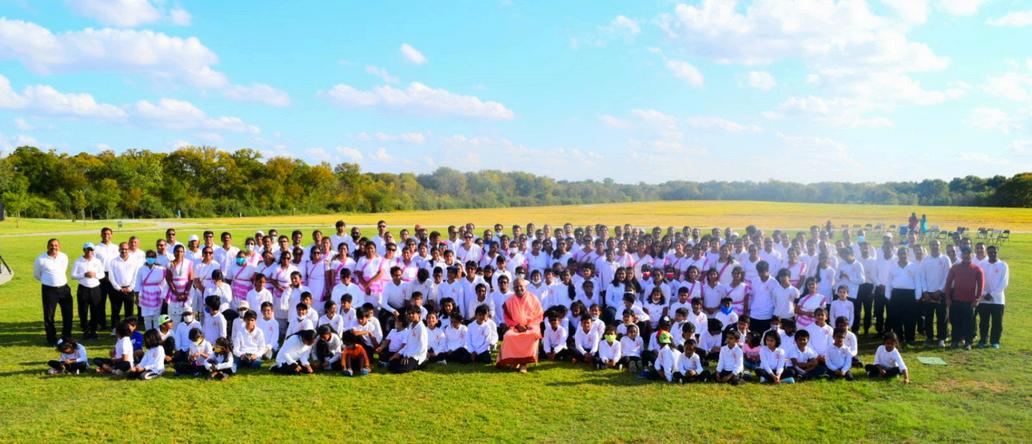
We would like to hear from you.
Please send your feedback to hssbala2022@gmail.com